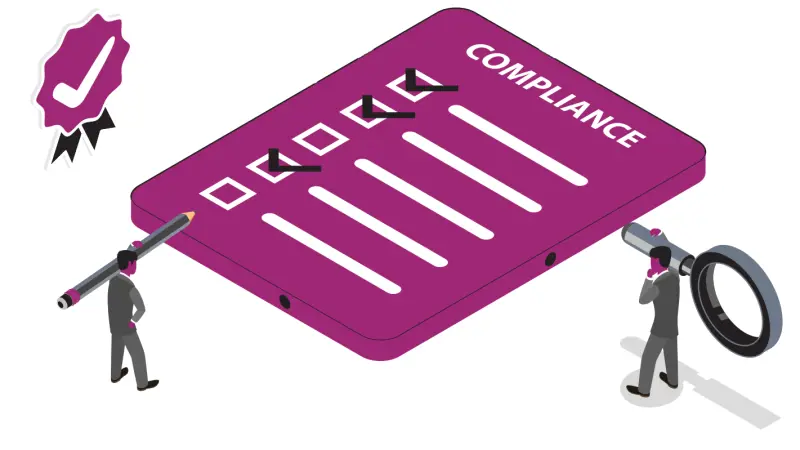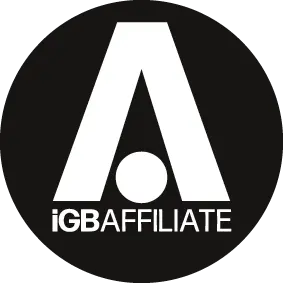

Operating in a highly regulated sector means adhering to strict guidelines to avoid potential compliance issues. Emily Garner runs through what marketers need to know when creating digital PR campaigns for igaming brands
For igaming operator brands, it’s now essential to consider potential compliance issues when creating engaging and impactful campaigns. Not only does this ensure that your target audience can play in a safe and secure gambling environment, but it protects you from the significant financial and reputational repercussions that can come from violating regulations.
As content marketing continues to rise in popularity, it’s never been more important for igaming brands to attract and maintain customers through effective campaigns in order to compete. And while there are all the usual roadblocks marketers need to navigate when creating these campaigns, such as KPIs, relevance and target demographic, there are also the restrictions that come with operating in a highly regulated market.
There’s nothing worse than investing in a campaign concept that looks great on paper, yet causes legal issues in outreach
So, how can marketers conceive and execute content campaigns that adhere to these guidelines and yet still attract links? Here, we look at the key steps to follow when working within the igaming sector, and the common compliance concerns to be aware of.
How to avoid compliance issue
The most important step for marketers looking to create content in the igaming sector is to ensure you are completely aware of what guidelines you are operating within. As well as legal requirements like data privacy, intellectual property issues and rules issued by consumer protection bodies, this also includes practices you would do well to avoid from an ethical, reputational or operational standpoint.
So, it’s important that marketers look to identify all areas of vulnerability as early as possible, as this will inform the entire campaign creation process from ideation through to execution. This discussion is particularly important when working with international igaming brands or clients operating in a market that you’re unfamiliar with, as legislation can differ drastically depending on location.
Without this, you run the risk of pitching campaign concepts to a brand that are not feasible or appropriate, which is a waste of time, effort and budget.
Another key way to avoid being caught out by compliance concerns late in the process is to make sure your igaming client passes all relevant material to their internal compliance or legal team for sign off. Often, marketing teams will select a concept based on the topic or outreach potential and not consider the legal implications – involving a compliance team as early as possible will prevent back and forth.
And finally, it’s recommended that all igaming brands and related marketers regularly consult legislation between campaigns to stay informed and up to date with key changes intellectual property issues and consumer protection regulations. But remember, the laws aren’t the same in every market, and laws differ between states in the US, so you’ll need to consult local legislation on top of key compliance concerns.
- Data collection and privacy As with all brands. As with all brands, it’s crucial that those in the igaming sector follow GDPR guidelines and other data protection legislation when collecting or managing customer data. This means you can’t distribute any customer data, such as the sum spent on slots, without authorisation and/or appropriate anonymisation, or you may face fines or prosecution. This is particularly important for brands that handle a large quantity of confidential data, such as payment details and addresses inputted on an online casino. Again, data protection laws can differ by region so be sure to adhere to all local and national guidelines.
- Intellectual property issues. Intellectual property issues refer to things like image copyright and trademarked material which aren’t authorised for commercial use. When it comes to igaming campaigns, it’s particularly prevalent for entertainment-based topics, such as film titles or album covers, or concepts that might require photos of celebrities and other notable public figures. That means that you can’t use them without permission; if you do, you may face legal repercussions for infringement, which can include hefty fines, bans or even prosecution.
- Consumer protection laws. Consumer protection bodies are organisations dedicated to keeping customers safe and happy when using a service, such as an ombudsman, while consumer protection laws exist to prevent unethical business practices like false advertising or faulty services. Igaming operators must follow laws around consumer rights when offering a transactional service, or else run the risk of being deemed unsafe or unfair by consumers. This is particularly important when it comes to marketing, as you need to ensure that you’re accurately depicting your services when outreaching a related campaign.
The best igaming content campaigns are those that are topical, relevant and engaging, but, more importantly, risk-free. There’s nothing worse than investing in a campaign concept that looks great on paper, yet causes legal issues in outreach. Therefore, it’s worth putting the groundwork in as a marketer to ensure you’re completely clued up on the regulations you need to follow, the topics to avoid, and how you’ll manage any negative repercussions.
Understand the sign-off process
For many PR campaigns, a quick sign-off process is crucial to success, as it allows you to react to timely news events in order to secure press coverage and links.
That’s why it’s important to understand the restrictions your brand faces before mapping out any activity, as this will allow for a much smoother execution process.
For example, igaming brands need to be careful not to discuss or promote storylines that can be related to a younger audience – either in theme, target audience or vague references. Others wish to avoid mention of alcohol, drugs or other taboo topics.
By knowing the restrictions you may face upfront, you can pre-plan and prepare your digital PR strategy accordingly.
Use insights to get creative
However, it’s not all negative. No matter how many compliance issues and restrictions you face as a brand, there are always ways to be creative and devise engaging content for your target demographic. The secret to this is having the best understanding possible around the types of media you’re targeting and the type of content they’re most likely to consume.
This can be achieved in a number of ways, including conducting market research, studying your Google Analytics data or even investigating from which third-party channels your customers are accessing your website. Another great way of understanding what types of content your target audience likes to interact with is by looking into Facebook Audience Insights (FAI).
This will give you a feel for the publications, format of content and the topics you need to be thinking about when creating campaign concepts. Whether that’s sport, celebrity gossip, pop culture or gaming news, this will help you to generate ideas that aren’t too focused on the igaming industry, but are still relevant to your target audience.

Emily Garner
is senior content and digital PR lead at Blueclaw Media, with a specialism in igaming SEO. With nearly four years’ content marketing experience, Emily specialises in content generation, research and press release creation
